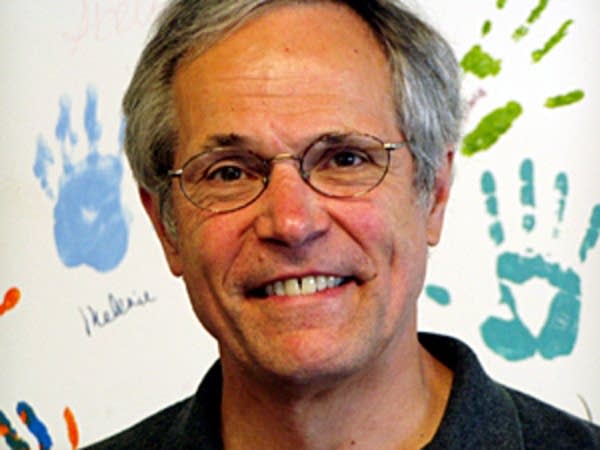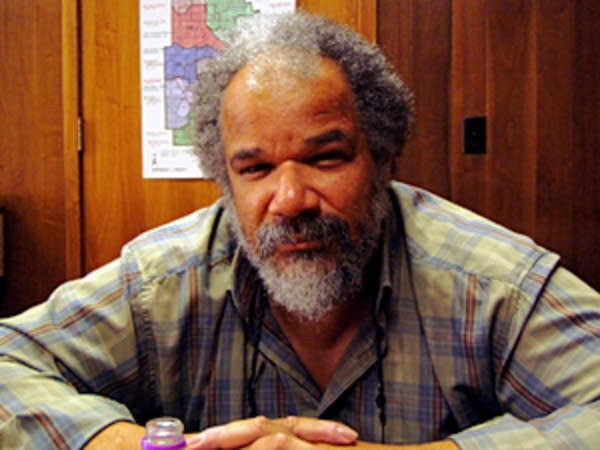Candidate's education view shaped as superintendent

The Minneapolis school board gained national attention in 1993 when it hired Peter Hutchinson and his consulting firm, Public Strategies Group, or PSG, to run the district.
It was a first-of-its-kind partnership between a large urban school district and a private company. Hutchinson took on the role of superintendent with no previous experience in education.
Hutchinson had been on the job only a few weeks when he paid a visit to Anderson Elementary School, where a student asked about his job.
If what we're doing isn't affecting student achievement, if it's not improving outcomes for kids, we're working on the wrong stuff.
"I think mostly what you do as superintendent is go around and encourage people to do their absolute best, and ask them what's standing in their way, and get whatever is standing in the way -- you know, to knock down all the obstacles, so that you can learn as much as you possibly can," Hutchinson explained.
Create a More Connected Minnesota
MPR News is your trusted resource for the news you need. With your support, MPR News brings accessible, courageous journalism and authentic conversation to everyone - free of paywalls and barriers. Your gift makes a difference.
In 1993, the Minneapolis school district was in a financial mess. PSG specialized in turning around troubled businesses and organizations. A divided school board hired Hutchinson and his company under a pay-for-performance contract.
Ann Kaari, who was chairwoman of the Minneapolis school board in 1993, says Hutchinson and his company offered the kind of leadership the school district desperately needed at that time.
"I think he brought a breath of fresh air into the district," Kaari said. "He got people looking at a strategic direction -- that there needed to be a plan in place of how the district was going to operate, and how students were going to achieve, and how we were going to bring that about. And it shouldn't matter who the superintendent was or who the board of education was, that this plan should be what it was that we were all focused on."
Kaari says Hutchinson improved Minneapolis public schools, both financially and academically. He brought back neighborhood schools, and helped convince Minneapolis voters to pass a property tax levy for smaller class sizes. A decade later, Hutchinson looks back with pride on his time as superintendent. He says his approach then was to make student achievement the basis for every decision.
"The truth, is we irritated people," Hutchinson said. "There were people who wanted us to attend to their interests, but we said, 'No, we can't do that. We've got to focus on kids.' So the result was they were unhappy, but kids were better off. Student achievement improved in the three and a half years we were there, and I'm happy to say in the years after as well."

But the academic news wasn't always good during Hutchinson's tenure. The state launched new standardized tests in 1996, and only 38 percent of Minneapolis students passed the reading exam. Just 43 percent passed in math.
Then-Gov. Arne Carlson criticized Minneapolis schools, and cited the low test scores in his push for private school vouchers.
There were other critics too. The Minneapolis NAACP sued the state, claiming Minneapolis public schools weren't providing an adequate education to low-income and minority students.
"So the district was in a crisis situation, as far as I could see," said Bill Green, former school board member and the current interim superintendent in Minneapolis.
Green joined the Minneapolis school board shortly after the hiring of Hutchinson. Green says he liked Hutchinson, but didn't see any benefit from PSG. Green says that's why he gave Hutchinson and PSG a letter grade of F during one quarterly evaluation.
By early 1997, Green says the school board and Hutchinson knew it was time for a change.
"At the time he was brought in, with the issues confronting the district at that time, I thought he did a very good job in addressing them," Green said. "As time moved on, and as we moved into a different phase, I think that that different phase required a different kind of leadership."
The lessons Hutchinson learned in the Minneapolis school district have shaped his campaign for governor. His vision for state government is to focus on four key areas, including education.
"If what we're doing isn't affecting student achievement, if it's not improving outcomes for kids, we're working on the wrong stuff," Hutchinson said. "And we best get after working on the right stuff, because although we have a great education system, it's not good enough."
Hutchinson faces a primary election challenge from another IP candidate with an education background, Pam Ellison. She is an educational assistant at a St. Paul high school and serves as chairwoman of the school's site council.
